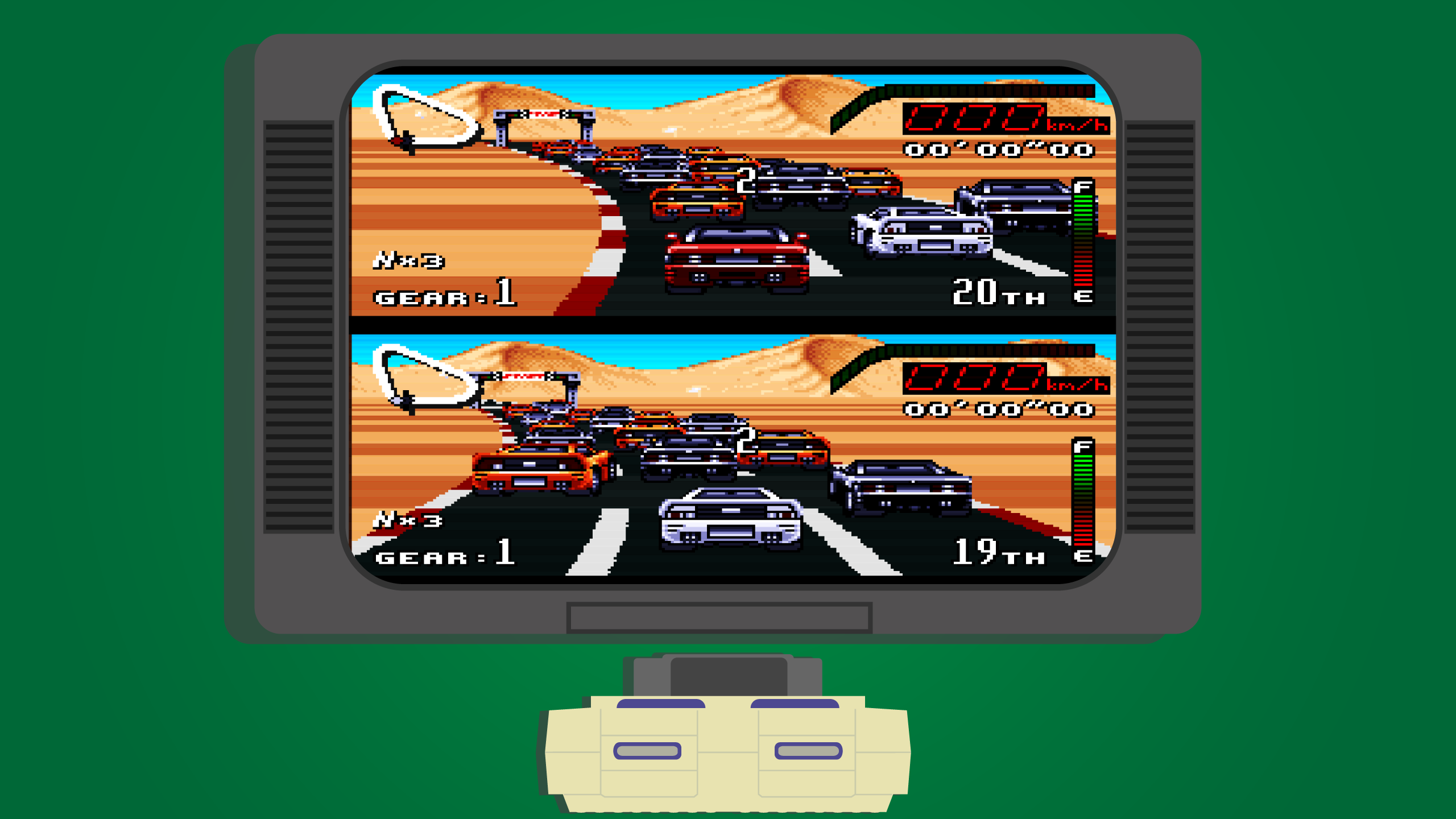Living in a third world country is a challenge. Things that developed countries take for granted can be a struggle in these parts. Education, health care, technology, every major area of society is always behind, always lacking. And of course, video games were no exception, being hard to come by and expensive as hell. However, there was a way, a beacon of hope, a shining light at the end of the tunnel: the locadora.
The What Now?
Back in the 90s, the Brazilian economy was rough. A mix of inflation and high taxes made anything imported from other countries prohibitively expensive, so only the rich kids had the cool toys and pieces of tech, that included consoles. PCs weren’t popular yet, at least not as an entertainment machine, being used mainly for work and limited internet access. But the popularity of video games was coming, and as always, Brazil would find a way: the locadoras.
The locadora was extremely popular from the beginning of the 90s to the mid-2000s, and since there isn’t a translation for that word in English— at least not in the way we used it; allow me to explain the concept. It was a store where you’d pay to play whatever the hell you wanted for however many minutes you could afford. The price was usually 1 Brazilian Real (our currency) for an hour of play, similar to Arcades except it wasn’t the game that kicked you out after you ran outta money, it was the owner of the place slamming the power button before you could save your progress. I guess they’re also similar to rental shops where you could, well, rent the cartridge but while that was possible, the preferred way was to play it at the store, for more reasons than not owning the console at home.

One of them was the thrill of discovering a good game. I don’t think I need to explain that back in the 90s we didn’t have access to the internet, our information came from magazines and uncles that worked at Nintendo. So when new games arrived it was an event! All the neighborhood kids would be there, ready to dig through the piles and find the next great thing and let me tell you, it was a shot in the dark: some cartridges didn’t have their original art, some were as good as new and others looked like it would break the moment we pressed the power button. The quality was all over the place so it made for an exciting treasure hunt. And you had to choose carefully: most owners had rules for how many times you were allowed to change games! Now imagine being stuck playing Dr. Hyde and Mr. Jekyll on the NES. Your day would be ruined!
It Takes Two To Tango
Reason number two is the one that really explains the popularity of the locadora. Being a Brazilian kid in the 90s meant we suffered from a serious case of not having money, but you didn’t necessarily need the money in order to play. The locadora was a hub, a place of discovery and socialization— you could go there just to chat with other kids, check what cool games they found out, ask for advice and most importantly: grab the second controller. You could just ask if anyone wanted to play together and join in for the low price of free and a promise to repay the favor later. But if you did happen to have the money, splitting the bill with a couple of friends was greatly beneficial! Because we paid for the time spent using the consoles, two people with fifty cents each meant an hour of play, instead of thirty minutes each if you were to play different games. Because of this, multiplayer games were king, and many games that went under the radar around the world became huge hits over here, such as Metal Warriors, Rock N Roll Racing, the Bomberman series (especially after we got hold of a Multitap), and Top Gear —a game that was so important, it deserves its own article!
This social aspect gave the locadora a strong sense of community. More than a place to just discover and play games, that was our own little world, where we competed, cooperated, learned together, and made friends, including the owner! You could show up and ask for the usual game and they would know exactly what you were talking about, it was amazing. And of course, a community needs rules, and ours wasn’t different.
The Three Commandments
The locadoras were first and foremost a business place, and it was impretarive to look professional both outside and inside the store. The biggest ones had fronts that could easily be mistaken for a modern GameStop for example, with consoles and games on display, big posters announcing whatever was hot at the time and on the inside, piles of gaming magazines, comfy chairs, shining controllers, and a big counter from where the owners controlled everything. And others were like my humble locadora at the town square, a re-purposed garage with a bunch of SNES on one side, a bunch of Sega Genesis on the other, and one very lonely PS One right in between, while the games were kept in a separate room only the owner had access to. But regardless of what kind of store you went to— big and professional or small and amateur; once you were inside and playing, the magic was the same.
While the finer details vary from store to store, there were a few golden rules every locadora had. Those words were the law and violating them would result in a suitable punishment. The first and most absolute of them all: no swearing. The locadora was a store mainly for kids and dirty words were absolutely forbidden, with the punishment of losing time or straight up getting banned, depending on the gravity of the act. Owners wanted to keep their good image so that parents would be more willing to drop their kids by, and no parent in their right mind would want their kids to develop a case of sailor’s mouth! And God help you if you ever get a reputation of being foul-mouthed, no one would want to share their time with you outta fear of losing precious gaming time.

Rule number two: be a clean boy. You’d think this would be obvious but kids have no common sense. Since many had the habit of dropping by the locadora after a whole day of playing soccer, some would just clean their hands and sweat on their shirts, take them off, and call it a day, instead of you know, going home and taking a goddamn shower first. There was one exception: the locadoras in the really poor areas of the city. Some of these kids had one shirt and maybe a school uniform and that was it, so human kindness prevailed there (ain’t that a rare sight today). Oh, and speaking of uniforms, they weren’t allowed as well. This was to stop people from skipping school, or at the very least, to not make it obvious to any parent that might happen to pass by.
The third and final rule: loser passes the controller and waits their turn again. Do I even need to explain that one?
All Good Things
Those were golden days. Although I was born in 95 and was only able to catch the tail end of the locadora, my time there was unforgettable. Because I was raised on PC gaming, it took me a while to go out there and found out what I was missing and to someone who was used to play alone at his computer, the reception I got at the locadora was overwhelming. Since I was one of the few kids with a PC and had never touched a console up until that point, we traded stories, we recommended games to each other and soon enough I was sucked into a world I never even imagined existed. Because of my better than average knowledge of English at the time, RPGs were my jam and suddenly I had a whole new pile of games to unearth! Beyond Oasis, Chrono Trigger, Final Fantasy, Link To The Past, and so many others. I finished those long games at the locadora, which by the way, was such a pain! Anyone could mess with your save data, losing hours of progress, or even entire runs! But I persevered and became one of the first to 100% Chrono Trigger, and I did all of that with a small audience, to whom I explained the plot to the best of my ability. Can you even imagine that happening nowadays?
But nothing lasts forever. The decline started right after the popularization of the PS One thanks to (what else) piracy. Getting games became a lot cheaper thanks to the gray market (and later the Internet as a whole) and that was their downfall. Now that the games became much more accessible, all of a sudden owning your own console was no longer a pipe dream. And many did just that, whether it was the SNES, Genesis, or the PS One, slowly but surely as the morrow, the hardcore crowd started their own collections, leaving the locadoras to the most casual gamers. The locadoras would get a second wind with the coming of the PS2 and the vast amount of soccer games (and modded soccer games) that came with it, but the cycle just repeated itself. And, so I watched as one by one, the consoles I loved from the 16-bit era were replaced or discarded and before I realize, it was all gone. After that, I didn’t have a reason to frequent the place anymore: soccer games dominated the new consoles and I always preferred to play the real thing instead. But when I saw that that old place close its doors for the last time, I knew that a part of my childhood had just died and that an era had just ended. It hurt like hell.

Today, so many years later what I have left are memories, and all I can do is share them. With old friends who lived the same, with my brother who wasn’t even born at the time, with my father that introduced me to gaming in the first place, and with you, the one reading this text right now. And I hope I can continue to do so for as long as I breathe.


Get involved!
Comments